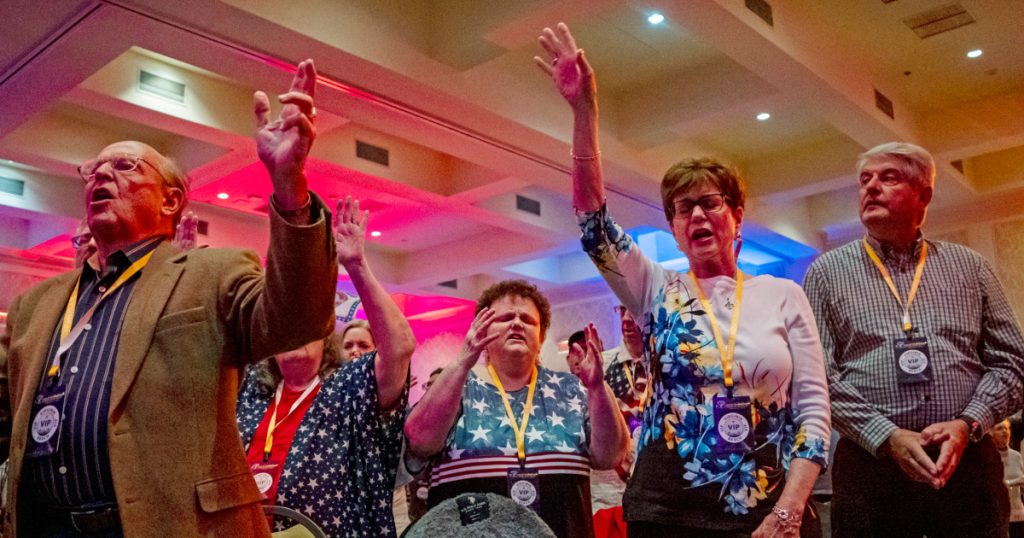The program “FlashPoint” is part of a growing evangelical movement that encourages followers to see themselves as soldiers in a spiritual battle. Author Bradley Onishi, a former megachurch pastor, believes that this framing primes loyalists not just for action, but for extreme measures. President Trump has embraced elements of this framing in his speeches, warning that the left wants to tear down Christian symbols and promising to restore Christian power if reelected. He has also pledged to eliminate the Johnson Amendment, a law that bars nonprofit organizations from endorsing political candidates.
Despite controversy surrounding the mixing of religion and politics on “FlashPoint,” White evangelical Protestants remain a core part of Trump’s voting base, with over 80% planning to support him in the upcoming election. In an effort to increase this support, “FlashPoint” has encouraged pastors to preach a pro-Trump message on Sunday mornings. Rick Green, a regular panelist on the show and founder of Patriot Academy, defends the program’s blending of religion and politics by asserting that critics are ignorant of America’s Christian origins, a claim disputed by historians. Green believes that “FlashPoint” provides more truth than any other news program in the nation.
Critics of “FlashPoint” argue that the program dangerously blurs the lines between religion and politics, further polarizing an already divided nation. They believe that such extreme rhetoric and views can lead to radicalization and potentially violent actions. The program’s focus on restoring Christian power and promoting a pro-Trump message has stirred controversy and raised concerns about the potential consequences of mixing religion and politics in such a manner.
The rise of Christian nationalism in America, as documented by Onishi in his book “Preparing for War,” reflects a shift towards a more radical and militant form of Christianity that views political debates as a fight for eternity. This ideological shift has been embraced by Trump in his speeches, where he champions the restoration of Christian power and the elimination of laws that restrict religious organizations from endorsing political candidates. The show’s host, Bailey, has not responded to requests for interviews, while panelists like Green defend the program by claiming it provides more truth than other news programs.
As the election approaches, “FlashPoint” continues to advocate for a pro-Trump message among pastors and followers, emphasizing the importance of supporting the president in order to advance Christian values and protect American freedoms. The program’s blending of religion and politics reflects a broader trend towards Christian nationalism and highlights the influence of evangelical beliefs on American politics. Despite criticism and concerns about the extreme nature of the program’s messaging, its loyal following remains committed to the ideology of spiritual warfare and the belief that their actions in this life will determine their fate in eternity.













